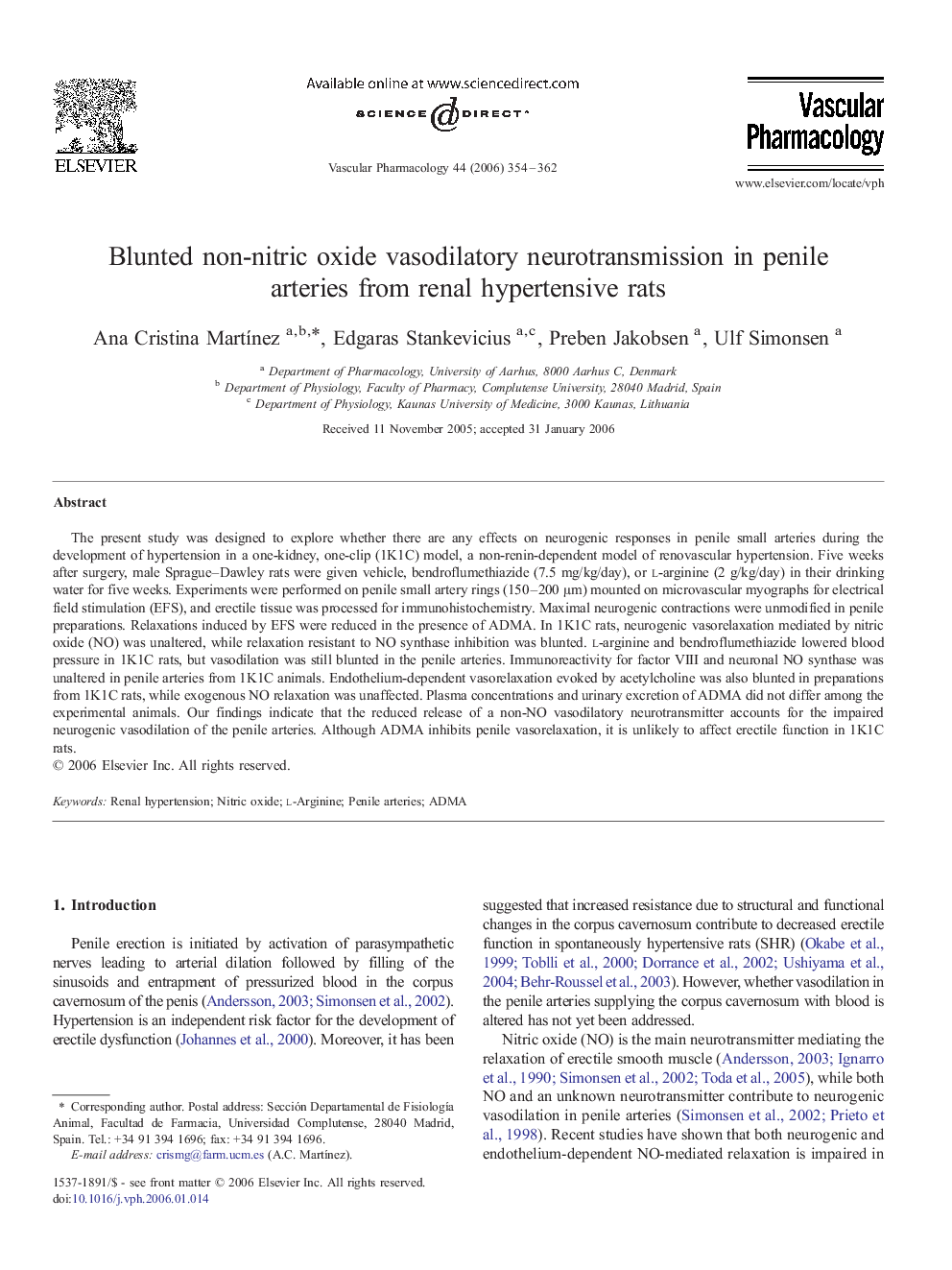| Article ID | Journal | Published Year | Pages | File Type |
|---|---|---|---|---|
| 2575179 | Vascular Pharmacology | 2006 | 9 Pages |
Abstract
The present study was designed to explore whether there are any effects on neurogenic responses in penile small arteries during the development of hypertension in a one-kidney, one-clip (1K1C) model, a non-renin-dependent model of renovascular hypertension. Five weeks after surgery, male Sprague-Dawley rats were given vehicle, bendroflumethiazide (7.5 mg/kg/day), or l-arginine (2 g/kg/day) in their drinking water for five weeks. Experiments were performed on penile small artery rings (150-200 μm) mounted on microvascular myographs for electrical field stimulation (EFS), and erectile tissue was processed for immunohistochemistry. Maximal neurogenic contractions were unmodified in penile preparations. Relaxations induced by EFS were reduced in the presence of ADMA. In 1K1C rats, neurogenic vasorelaxation mediated by nitric oxide (NO) was unaltered, while relaxation resistant to NO synthase inhibition was blunted. l-arginine and bendroflumethiazide lowered blood pressure in 1K1C rats, but vasodilation was still blunted in the penile arteries. Immunoreactivity for factor VIII and neuronal NO synthase was unaltered in penile arteries from 1K1C animals. Endothelium-dependent vasorelaxation evoked by acetylcholine was also blunted in preparations from 1K1C rats, while exogenous NO relaxation was unaffected. Plasma concentrations and urinary excretion of ADMA did not differ among the experimental animals. Our findings indicate that the reduced release of a non-NO vasodilatory neurotransmitter accounts for the impaired neurogenic vasodilation of the penile arteries. Although ADMA inhibits penile vasorelaxation, it is unlikely to affect erectile function in 1K1C rats.
Related Topics
Health Sciences
Medicine and Dentistry
Cardiology and Cardiovascular Medicine
Authors
Ana Cristina MartÃnez, Edgaras Stankevicius, Preben Jakobsen, Ulf Simonsen,
